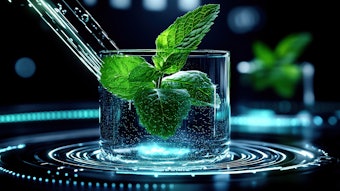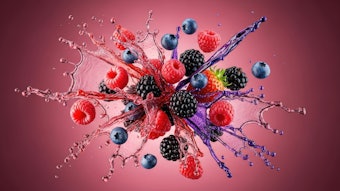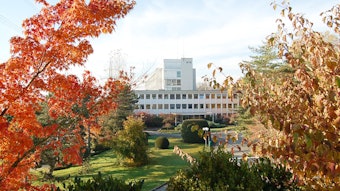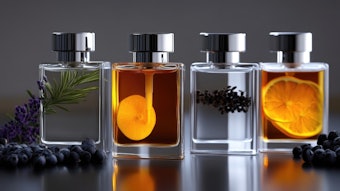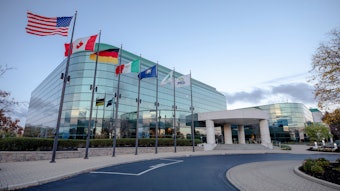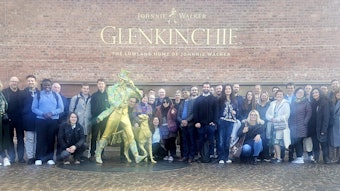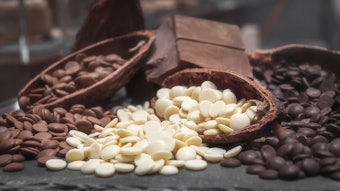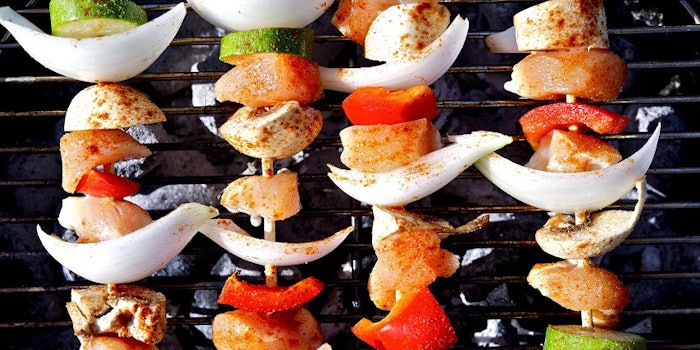
Mane SA
2017 sales: €1155.8/$1,306.10 million*
Estimated market share: 5.0%
Rising one spot since last year’s leaderboard, Mane has made progress in-terms of its global reach and capacity. In March 2017, the company celebrated the opening of its office in Abidjan, Ivory Coast, which included a fragrance R&D center equipped with application labs and test cabins. Then in November, Mane laid the foundation for a new manufacturing hub in Pinghu, Zhejiang Province of China, with operations starting in 2020.
In addition to its infrastructure advancements, Mane released several product portfolios. In March 2017, Mane launched a range of fresh natural herb flavors, including basil, coriander, mint, chive, parsley, dill and tarragon. On the more savory side, Mane released Sense Capture spices in November 2017, a collection of 14 natural flavor references with eight spice profiles.
These moves, along with other company initiatives, led the company to continued growth year over year.
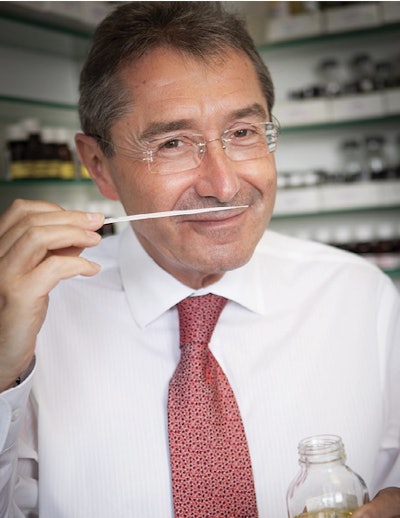
Perfumer & Flavorist: Since last year, what has Mane focused on to raise its position on the leaderboard?
Mane: With revenues up 9.2% in EUR, from €1,058.5 million in 2016 to €1,155.8 million, and up 11.5% in U.S dollars, from $1,172.0 million to $1,306.9 million, the group posts consolidated sales figures that continue to place Mane among the fastest growing leaders of the fragrance and flavor Industry. Without the negative impact of exchange rates, our turnover in Euros would have progressed by 10.1%.
All divisions have experienced growth in 2017, with particularly strong results in our flavors division. With new successes in beverages, confectionery and seasonings, where we continue to win [are] thanks to our Pure Capturej natural flavor solutions, our proprietary Physcoolk cooling agent, and our vertical integration on spices oleoresins and extracts developed since 2014 with the acquisition of a majority stake in Kancor, flavors now represent 57% of our consolidated turnover. In addition, we took our partnership with Deli Spices in South Africa forward by acquiring a strategic stake in this family-owned group and long-term partner, in line with our strategy to reinforce our commitment to the meat and food-processing industry in the Sub-Saharan continent.
Our fragrance division also performed strongly, strengthening our strategic position with our major personal care partners and establishing new collaborations, particularly in the fabric care segment where we have been determined to grow our market share through the performance of our fragrances and through our Manencapsl technologies. Furthermore, with 10 creative and consumer awards received for fine fragrances developed by our talented perfumers in Brazil, France and the USA, and the thriving launch of Stronger With You, the new masculine fragrance by Emporio Armani, our fine fragrance teams consolidate Mane’s position as a true contender in the prestige world.
In line with our CSR commitment, our ingredients division strives to grow our sustainable supply of our raw materials to secure their sourcing. We have continuously put increased emphasis on consciously sourcing vanilla from Madagascar, as well as recreated the bourbon quality of vetiver and geranium. Through our Jungle Essencem technology, we also reinvent the extraction of iconic flowers and naturals from the South of France.
In parallel, we maintained a high level of investment into research and R&D, especially in organic chemistry and biotechnology, as well as in the development of new natural actives through our KANCOR team. Supporting fundamental research enables us to enrich our capabilities for innovative fragrance and flavor solutions.
I am also proud to announce that, after being awarded the Best 2015 Communication on Progress prize as a Signatory of the UN’s Global Compact since 2003, Mane was awarded the 2017 CSR Challenges Trophy for its environmental approach, a new external recognition which values the commitments and results engaged many years ago.
P&F: How is your company positioning itself to adapt to trends, like the growing demand for natural and organic products, transparency and digitization? What is your perspective about these rising trends shaping the market?
Mane: Mane is well positioned to capture the ever-changing modern trends; those we focus on are the ones we believe will grow to a significant share of the consumers interests or a sustained one since some of those you mention require a huge change in the sourcing of raw materials and hence our formulations. Take organic products for example: their regulatory context is not the same across the world. While we have a large range of organic flavors suitable for the U.S. and produce them in Woodlawn (Ohio), the EU regulation on the definition of organic flavors has been on-going for years in Brussels and is still in the final stage of its drafting. The number of ingredients you can formulate in organic products is also far fewer and their sourcing scarce and complicated, which is a real challenge to the creativity of our flavorists.
Almost 150 years ago, Mane was born in a small flower distillation unit and already embraced the complete traceability of the naturals produced in and around the family farm in Le Bar-sur-Loup. Natural products undoubtedly have shaped our DNA! We have never stopped using natural products in our fragrances and flavors, but then again, within the extremely complex regulatory and certification environment, what can legally be labeled as “natural flavor” in one country will not receive the same description in another. Biotechnology has helped us considerably in this domain, increasing the number of flavoring substances and fragrance ingredients which can claim a natural origin on our palette. Natural fragrances are therefore available depending on the various referentials which have emerged recently.
Mane also participates with its clients in different exercises of transparency that are aimed at giving more information to the consumers about the composition of the fragrance used in their favorite branded products. We are also very active in the drafting of the sustainability charter of IFRA/IOFI. And last but not least, we have conceived Green Motionn, a digital algorithm capable of rating each ingredient used in fragrances and flavors according to the principles of green chemistry.
P&F: As demand for naturals and molecules compete with supply, the industry is challenged to find alternative routes to production. Biotechnology, for example, is a booming segment. What opportunities are available in these alternative routes to supply?
Mane: The production of naturals, organic naturals and products from sustainable agriculture at the same time doe not quite fit the same agenda. There is less and less land available for agriculture every year on the planet. There is clearly a risk of losing the whole crop or plantation in case of infestation, which can only be avoided by the use of herbicides and pesticides. Most of the time, organic crops bring a lower yield to the farmers. There is one way to get you out of this dilemma in our industry and that is the use of various forms of biotechnology. With one caveat to that: the public opinion does not rule in favor of the use of GMOs, even if this would be the only economic substitute to the patient plantation of hectares of trees or sustainable crops.
That being said, Mane has developed its own production of well-known natural molecules or extracts through the use of classical fermentation and enzymatic reactions since 1987, the year of the establishment of our biotechnology department. We have complemented its production by contracting the cultures of flowers, roots, fruits and spices, and in this respect, the acquisition of Kancor has opened new horizons, not only in India for specific sourcing. Our production is not only aimed at flavoring substances which are both U.S. and EU natural, but also fragrance ingredients, not identified in nature. Fermentation offers also the unique capability to be more stereospecific and better targeted at avoiding solvents and heavy metal catalysts, which rate far better according to our Green Motion program.
P&F: In light of last year’s global weather events, such as hurricanes in the U.S. and Madagascar among others, which has affected citrus and vanilla production, respectively, how is your company handling the volatility in the natural supply market?
Mane: Climatic catastrophes, such as hurricanes, are part of the force-majeure events that are cyclical, unpredictable in their geographical occurrence, at least within few days before they occur. We will not pretend we are used to such circumstances but with the experience, there is only one way to cope with these situations:
- Have a large inventory of such raw materials like vetiver, which are produced in very few areas of the world that now have a record of shortages.
- Conclude multi-year contracts with reputable suppliers in differentiated interchangeable areas when this is acceptable to the perfumers or flavorists.
- Contract plantations or have your own.
- We deal with hurricanes the same way we have dealt with earthquakes, draughts and other man-initiated catastrophes the same way.
Far more difficult to predict and to manage was the citral crisis last year. This has impacted far more the industry supply of aromatic chemicals and essential oils inventories. If there were any! And speculation on many fronts has been the rule. How do you deal with this situation, when your long-established suppliers and competitors are defaulting in their supply as a domino effect? The only anticipation for Mane has been its high inventory policy and the capacity to “make your own” in our chemical plants. Certainly, we have learnt lessons for the future and addressed the policies, which have been proven to work at Mane. My thanks go to all my collaborators across the world who have worked day and night to invent solutions suitable for the satisfaction of our customers.
P&F: As companies are investing into adjacent categories, such as biotechnology, nutraceuticals, cosmetic actives among others, what are you learning from this market segmentation?
Mane: We have invested in conventional biotechnology for the past thirty years. We are regaining the fruits of our ethical choices along this long period, as legislations have changed, and we had the talent to anticipate them. Now that the natural trend has gained momentum, we have the capacity to ramp up production to meet the demand. New additions to our portfolio can be obtained through modern biotechnology but also by the addition of the competences within Kancor – Mane. These will complement our range of molecules which are antibacterial or antioxidant and open new avenues in the stable sourcing of cosmetic actives from the diversity of the Indian agriculture.
On the synthetic front, we screen our captive molecules to discover new functionalities, such as odor control management or bactericide and fragrancing properties, such as betahydrane for instance. Meanwhile, we are convinced that ‘fragrances’ and ‘flavors’ are far more understandable name tags than others for our divisions.
P&F: Looking ahead, what are some of the initiatives and plans that Mane has for 2018 and beyond?
Mane: In 2018 and over the next years, we will continue to build on the significant investments initiated in the past years to further increase our global presence with the addition or expansion of our research and development capabilities, including dedicated facilities for consumer insight and sensory research, as well as our production capacity in strategic markets.
In Asia, we completed the construction of a large state-of-the-art factory in Cibitung, Indonesia, which also houses our fragrance and flavor R&D as well as marketing, sensory analysis and consumer insight teams. In Singapore, we opened a new flavor research center to develop the next generation of flavors for the Asia-Pacific region. The innovation team in Biopolis contributes to the cornerstones of our technology, N Captureo, Sense Capturep and Pure Capture to provide cutting-edge flavors to customers in the region. After completing the construction of the second phase of our Shanghai plant, which effectively tripled the size of our research and development facilities as well as manufacturing capabilities, we have recently laid the foundation for a new production hub in the Zhejiang Province of China. This investment reiterates the group’s commitment to the Chinese market.
In the U.S., we further invested in our flavors production capacity through the expansion of our powder production capabilities. On the East Coast, we acquired a building in Parsippany in 2017 to relocate our U.S. headquarters and are currently completing the installation of our fragrance R&D, sales, marketing, consumer insight teams. A new production plant is also in our pipeline of investments.
We have also been active in Latin America as we celebrated the 40th Anniversary of Mane Mexico by doubling the area dedicated to R&D and pSroduction in our Lerma de Villada plant, moved our Brazilian creative center to new premises in Sao Paulo. This year, we are inaugurating a new manufacturing site in Medellin, Colombia, which did not simply double our production capacity, more importantly, it is an intelligent construction conducted under LEED standards built with convergent, efficient and sustainable systems focused on the respect and care for natural resources as part of our commitment to sustainability and the protection of the environment.
After opening an affiliate in Ivory Coast last year, we will pursue the expansion on our presence and reinforce our commitment to the African continent by opening an affiliate in Kenya. Finally, we are completing the construction of a reception center in our La Sarrée plant which has also been designed by integrating the LEED standards in the design and construction phases.


